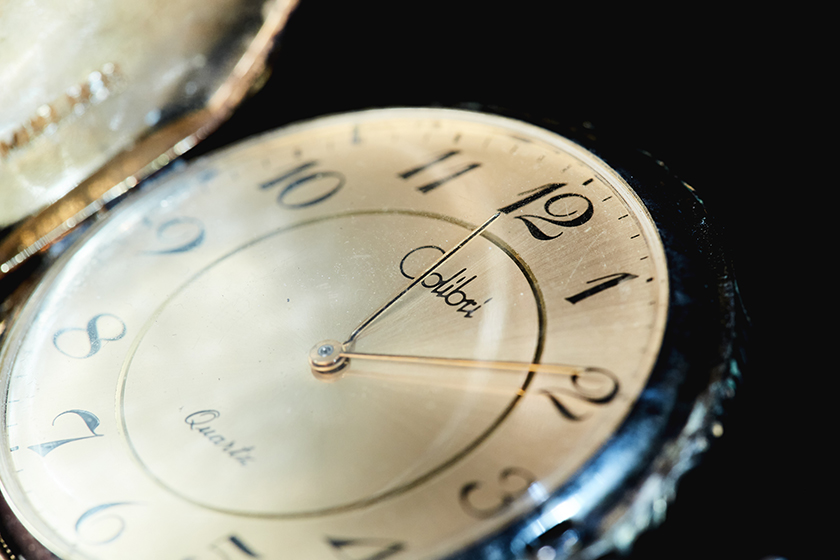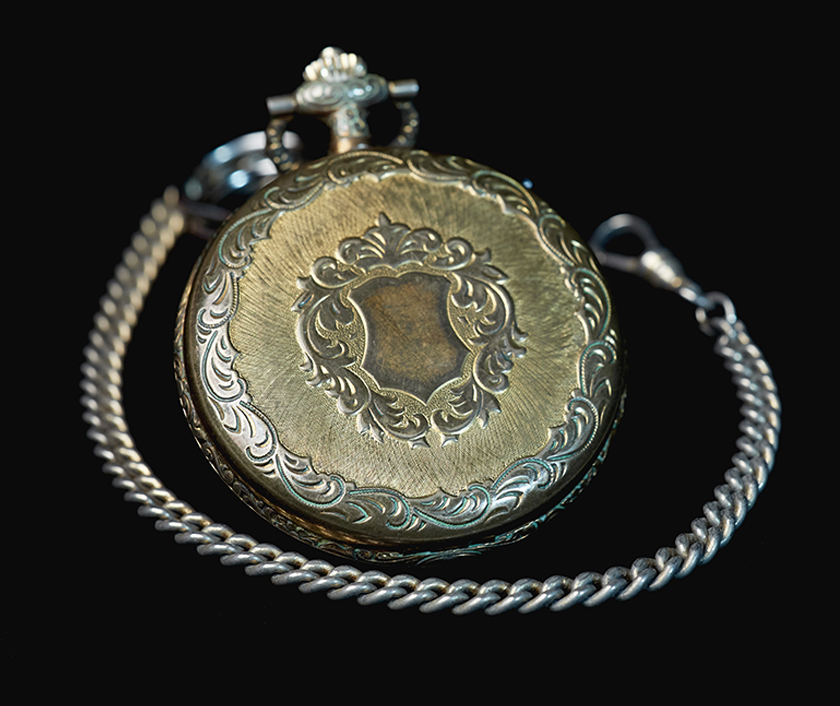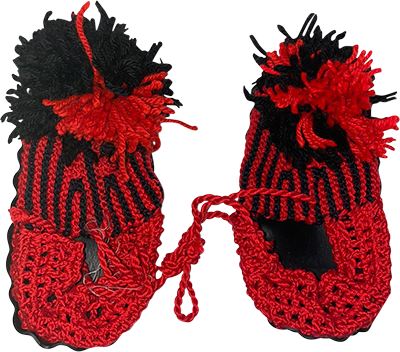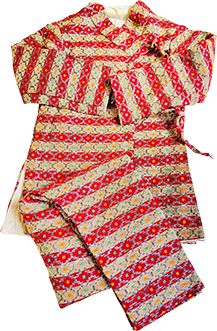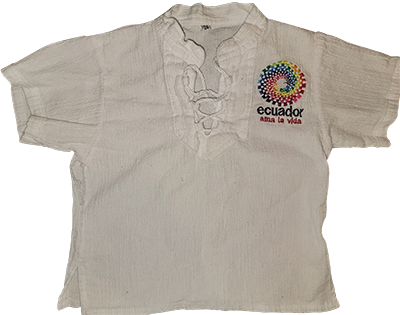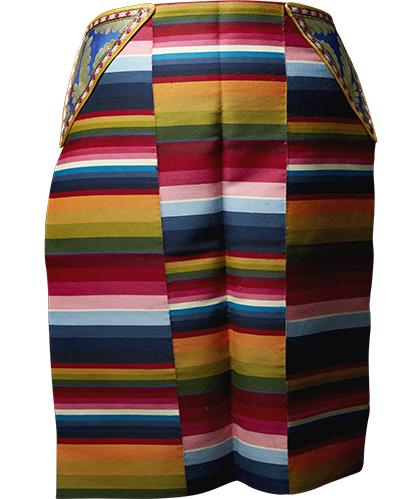Pocket Watch
ABOUT
This timepiece was most likely manufactured in the mid-twentieth century by Colibri, which still makes pocket watches today, and has been passed down through three generations of Owen White’s family. The pocket watch was originally given to Owen’s grandfather when he left Poland–this watch replaced the broken one Owen’s grandfather had received for his coming of age. Later, the watch was passed to Owen’s mother and finally to Owen in 2012. A pocket watch symbolizes a rite of passage into manhood, or more accurately, the workforce. Not only were pocket watches symbols of manhood in twentieth century Poland, but they also symbolized a young man’s ability to provide and care for his family. As young Polish men transitioned into the workforce, most often as factory workers, they were expected to arrive on time for their shift or face retribution from their employer. Becoming a man and the subsequent receipt of a pocket watch was bittersweet. It symbolized both the freedom to forge one’s own path, as well as forever being shackled to and aware of the march of time.
With the advent and widespread propagation of cellphones and modern day time syncing technology, we take timekeeping for granted. It is easy to forget that in the past, humans had to estimate the time. Individuals looked at the sun’s shadow or remained within earshot of the local church clock tower, which rang bells at regular intervals. It is a common phenomenon among animals, birds, reptiles, insects, and humans to keep track of time. The different phases of the moon were also used to mark a month. With modern advancements in technology, we do not bother with the sun and moon. From our perspective in the twenty-first century, this pocket watch might look old fashioned, but at earlier points in history, mechanical and then battery-powered watches were considered revolutionary. We must preserve this object as it traces the development of time keeping and is a reminder that human society is ever evolving.
— Andre Dunkley and Rajan Chaudhary
Click on Image to View Gallery
ORIGIN
Poland
MATERIALS
N/A
APPROXIMATE DATE
c. 1950s–1960s
COLLECTION OF
Owen White
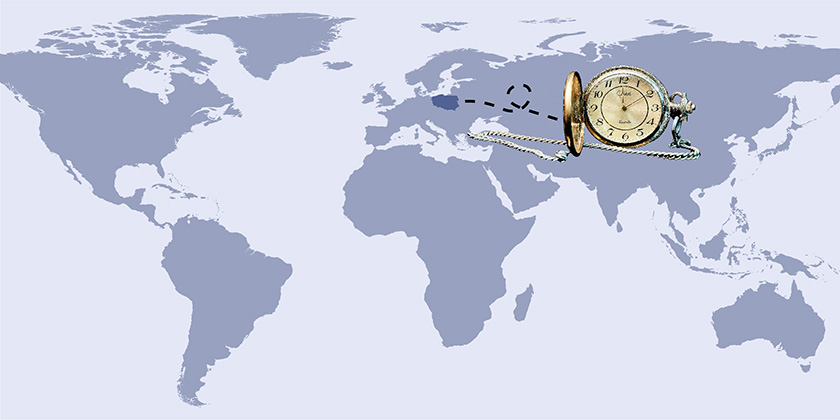
Pocket
Watch
Watch
Click on Image to View Gallery
ABOUT
This timepiece was most likely manufactured in the mid-twentieth century by Colibri, which still makes pocket watches today, and has been passed down through three generations of Owen White’s family. The pocket watch was originally given to Owen’s grandfather when he left Poland–this watch replaced the broken one Owen’s grandfather had received for his coming of age. Later, the watch was passed to Owen’s mother and finally to Owen in 2012. A pocket watch symbolizes a rite of passage into manhood, or more accurately, the workforce. Not only were pocket watches symbols of manhood in twentieth century Poland, but they also symbolized a young man’s ability to provide and care for his family. As young Polish men transitioned into the workforce, most often as factory workers, they were expected to arrive on time for their shift or face retribution from their employer. Becoming a man and the subsequent receipt of a pocket watch was bittersweet. It symbolized both the freedom to forge one’s own path, as well as forever being shackled to and aware of the march of time.
With the advent and widespread propagation of cellphones and modern day time syncing technology, we take timekeeping for granted. It is easy to forget that in the past, humans had to estimate the time. Individuals looked at the sun’s shadow or remained within earshot of the local church clock tower, which rang bells at regular intervals. It is a common phenomenon among animals, birds, reptiles, insects, and humans to keep track of time. The different phases of the moon were also used to mark a month. With modern advancements in technology, we do not bother with the sun and moon. From our perspective in the twenty-first century, this pocket watch might look old fashioned, but at earlier points in history, mechanical and then battery-powered watches were considered revolutionary. We must preserve this object as it traces the development of time keeping and is a reminder that human society is ever evolving.
— Andre Dunkley and Rajan Chaudhary
ORIGIN
Poland
APPROXIMATE DATE
c. 1950s–1960s
COLLECTION OF
Owen White

OTHER OBJECTS FROM THE EXHIBITION


